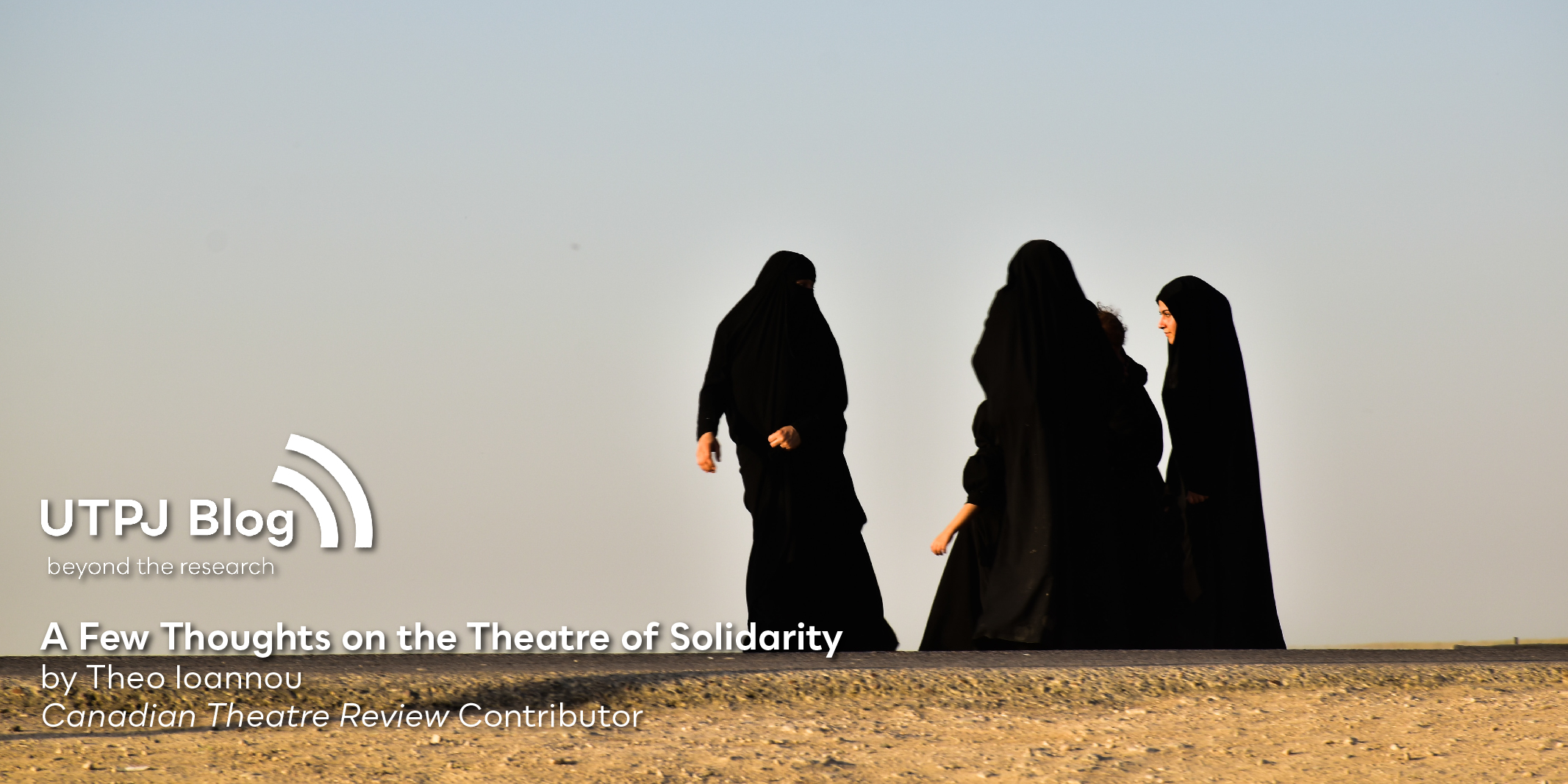
Written by guest blogger Theo Ioannou.
My recent article “‘How Could We Not Go to Mosul?’: Empathy, Anagnorisis, and the Politics of Recognition in Orestes in Mosul” makes the case for a type of theatre that fuels solidarity by bringing remote suffering (or the suffering of others) within our interpretative frames, using the structured apparatus of emotions and affects of the tragic idiom. This was argued using the work of influential thinkers, such as Judith Butler, Nancy Fraser, and Charles Taylor, to interpret Orestes in Mosul through the lens of recognition politics and establish anagnorisis as the realization of injustice that causes suffering. If tragedy can have such an effect, it follows that it is not only a dramatic genre but a mode of understanding that approaches a social phenomenon, and therefore not contained within the walls of a theatre or the printed lines of a script.
While this argument implies that there should be wide engagement with such ideas and cultural products, the work of the thinkers and creators presented in my article is sometimes thought of as inaccessible to those who do not have specialized knowledge of it. What I perhaps neglect to highlight in my original article is that the solidarity that can be fostered through these tragic emotions and affects in the context of larger social trends, such as recognition politics, is absolutely applicable to everyday interactions. In other words, the solidarity that empathy can create can point towards alternative ways of being in the world. After all, Butler’s idea that the frames of recognizability can be shifted through certain forms of artistic expression through which a connection to the social world can be re-established (54-55) necessitates that everyday interactions are altered, or at least challenged, even if policies remain the same. This is no small task, and it requires courage, even if it does not result in activism or political mobilization. Being able to recognize someone else’s grievability, and therefore livability (25), must start as an internal process, as it can be the result of accessing and re-experiencing painful past instances of lack of recognition and using them as the basis on which to build empathy towards those who have fallen outside the socially constructed frames of recognizability.
When we leave the theatre having had a powerful affective response to an image, what are we to do with it? I believe that even if we are too overworked to mobilize or too disillusioned to protest, it can still be radical to allow our affective responses to overrule the social conventions that stifle our empathy towards certain groups of people and dictate our interactions with them. Perhaps it’s an assertion but I think that this in itself can be radical.

THEO IOANNOU is a UK-based practitioner and writer. She has previously worked with Stand and Be Counted Theatre and has recently published “Until the Flowers Bloom” in Northern Dreaming, a collection of short stories published by LEEDS 2023 and the British Library.
“How Could We Not Go to Mosul?”: Empathy, Anagnorisis, and the Politics of Recognition in Orestes in Mosul” was published in Canadian Theatre Review 192: Ethics and Socially Engaged Theatre and is Free to Read until January 14th.
Comments on this entry are closed.